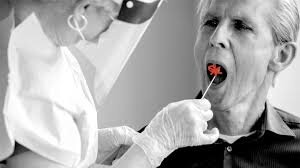A recent report highlights a troubling trend: early-onset breast cancer rates among women under 50 are on the rise. While overall breast cancer deaths have significantly decreased—by 44% over the past three decades—this increase in diagnoses, particularly among younger women, demands attention.
Despite progress, the report from the American Cancer Society reveals persistent disparities in breast cancer mortality rates, especially among women of color. Black women, in particular, are more likely to face aggressive forms of breast cancer, such as triple-negative breast cancer, and have the lowest survival rates across various breast cancer subtypes and stages.
The Role of Lifestyle Factors
Breast cancer is influenced by both genetic and lifestyle factors. In fact, studies show that nearly half of all cancer cases in the U.S. are linked to modifiable risk factors. This is particularly significant for breast cancer, which, after lung cancer, has the most associated modifiable risk factors.
Here are some actionable steps that can help reduce the risk of breast cancer:
- Maintain a Healthy Weight: Carrying excess weight can increase inflammation in the body, making the development of cancer cells more likely. Obesity is linked to a 30% higher risk of breast cancer in postmenopausal women.
- Regular Exercise: Physical activity plays a crucial role in maintaining a healthy weight and reducing cancer risk. Aim for at least 150 minutes of moderate aerobic activity each week.
- Follow a Balanced Diet: A plant-based diet, such as the Mediterranean diet, can help lower cancer risk. Focus on fruits, vegetables, whole grains, nuts, and seeds while minimizing processed foods and sugars.
- Limit Alcohol Consumption: Recent studies indicate that no level of alcohol consumption is deemed safe when it comes to breast cancer risk. Reducing or eliminating alcohol can significantly lower your chances of developing the disease.
- Avoid Environmental Toxins: Chemicals found in pesticides and plastics can accumulate in body fat and may increase breast cancer risk. Choose organic products when possible and avoid cooking with plastic.
- Consider Non-Hormonal Contraception: Long-term use of hormonal birth control and hormone replacement therapy (HRT) has been associated with an increased risk of breast cancer. Non-hormonal options, such as IUDs, may be safer alternatives.
Understanding Modifiable Risk Factors
Dr. Marisa C. Weiss, chief medical officer and founder of Breastcancer.org, emphasizes that modern lifestyles play a significant role in rising breast cancer rates among younger women. Factors contributing to this increase include:
- Delayed Childbearing: Women are having children later in life, which can affect breast cancer risk.
- Breastfeeding: Fewer women are breastfeeding, which can also influence risk levels.
- Hormonal Influences: Extended use of hormonal medications can elevate cancer risks.
The Importance of Awareness and Prevention
Women should be proactive about their breast health, especially if they have dense breast tissue, which can complicate early detection. Regular mammograms and discussions with healthcare providers about personal risk factors are crucial.
Key Takeaways
- Early-onset breast cancer is increasingly common, highlighting the need for greater awareness and prevention strategies.
- Despite overall declines in breast cancer mortality, significant disparities remain, particularly affecting women of color.
- Lifestyle changes, such as maintaining a healthy weight, exercising regularly, following a nutritious diet, and avoiding alcohol and environmental toxins, can greatly reduce breast cancer risk.
Conclusion
While genetic factors play a role in breast cancer, lifestyle choices significantly influence risk levels. It’s essential to prioritize health through diet, exercise, and routine medical care. If you have concerns about breast density or family history, consulting a healthcare provider for personalized risk management strategies is highly recommended.
By making informed choices and staying vigilant, we can work towards reducing the incidence of early-onset breast cancer and improving outcomes for all women.




